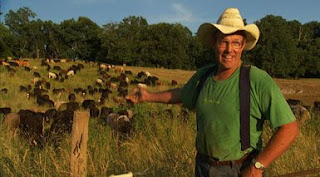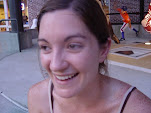
In general, I'm not a huge fan of "artsy" films. I prefer movies driven by a plot as opposed to a concept, but I made an exception for "Paris, je t'aime" and it's companion piece "New York, I Love You." "Paris, je t'aime," the first of the two, is a collection of 20 short films about love in all its forms, each set in Paris. The shorts were all made by different people, mostly French directors, but some American, including the Coen brothers and Wes Craven. And for all you foreign-film-phobes out there, fear not, it was only about half in French. The cast features many big-name American, British and French actors (Juliette Binoche, Willem Dafoe, Gerard Depardieu, Maggie Gyllenhaal, Bob Hoskins, Emily Mortimer, Nick Nolte, Natalie Portman, Elijah Wood -- just to name a few) and also many foreign actors most of us have probably never seen before. What I enjoyed about "Paris, je t'aime" most, and what sets it apart from other similar films, is that the stories weren't interconnected and there was really not much of a central theme other than the setting. They were totally separate short films -- some were sweet and tender, some were comedic, some were a little more out there, but all were entertaining and showed a unique perspective on love. To be able to introduce characters, tell their story and resolve their conflicts within a two-hour movie takes talent, but to do it in just a few minutes, and to have the audience emotionally-invested within that time is amazing. The directors, writers and actors were able to achieve this with most of these shorts. Beyond the stories, I also loved seeing all the different parts of Paris featured in the movie. It's really such a beautiful city, and it definitely made me miss my days of travelling the world. "New York, I Love You" follows the same concept, except obviously the short films are set in New York. Again we have various directors and an even more star-studded cast (Rachel Bilson, Orlando Bloom, James Caan, Bradley Cooper, Ethan Hawke, Shia LaBeouf, Blake Lively, Christina Ricci, Robin Wright Penn, etc.) I enjoyed "New York, I Love You," but not quite as much as "Paris, je t'aime." While the stories were still compelling, I felt they lacked the variety seen in the other movie, as if many of them could have easily been directed by the same person. This may have been intentional though, because in many of the transitions, characters from different segments came into contact with each other, so I think there was more of an effort to create cohesiveness than was seen in "Paris, je t'aime." All in all though, two great films. It's refreshing to see love depicted realistically, whether it's between husbands and wives, family members, friends, or even sometimes strangers.






